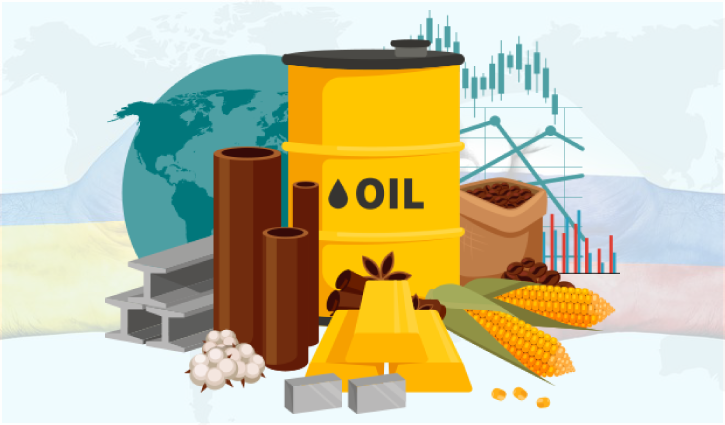Bangladeshi households may feel the heat of Russia-Ukraine conflict
BI Analysis || BusinessInsider

Graphics: Collected
Energy and commodity prices, be it everyday goods or raw materials, are on a rising trend for the past one-year, pinching consumers of developing to poor countries.
Russia’s assault on Ukraine has further deteriorated the global outlook for inflation as the war has already pushed oil prices through the roof.
Analysts predict that a further rise in energy prices may happen if the Russia-Ukraine conflict prolongs.
Likely impact on Bangladesh:
Bangladesh imported around $60 billion worth of goods in fiscal 2020-21.
Most of the goods were raw materials, intermediate goods, petroleum products, LNG and capital machinery.
After seven months of this fiscal year till January, data showed the country’s import bills will cross $70 billion at the end of the year.
So, a further rise in prices means Bangladesh has to spend more on imports.
Government will be under further pressure:
The finance ministry has been struggling to meet the rising demand for subsidies from other ministries and divisions.
For example, the agriculture ministry has sought nearly Tk 30,000 crore just to bear the subsidy cost for fertilizer only. The demand is more than three times higher than the annual spending in the previous fiscal year.
In another case, the Power Development Board has demanded Tk 4,211 crore just to meet up the buying and selling price gap of electricity for two months – September and October 2021.
The situation is grave for LNG as its price has increased five times in a year. But the government has no option but to import the gas to run the wheels of the factories.
“A further rise in energy and fertilizer costs is likely to shrink the government's spending capacity and hurt the economic recovery as well,” said a senior finance ministry official on Thursday.
Supply chain disruption to aggravate further:
The ongoing Covid-19 pandemic has exposed the vulnerability of the global supply chain. Shipping freight costs have become manifold, even 10 times higher than the pre-pandemic cost. The latest conflict between Russia and Ukraine will further escalate the trend, analysts forecast.
Impacts on private sector and consumers:
Bangladeshi companies take no time to pass extra costs on to consumers. This has been evident for the last one year.
Costs of everyday essential goods - from rice to flour, edible oil, sugar and soap have been increasing for the last several months. Companies say prices of raw materials and skyrocketing freight costs amid the ongoing coronavirus pandemic have made their business costlier than any time before. But they did take hardly any time to increase the prices.
The government in November increased diesel and kerosene prices by 23 percent saying that it cannot bear the rising subsidy cost for fuel imports and that decision caused a huge uproar among opposition parties, economists and consumer rights organizations. But nothing could move the government from its decision. Ultimately, the victims were the consumers, especially poor ones.
The latest global situation centring Russia and Ukraine conflict has poised to push the prices of commodities up further and thereby increase the burden on businesses and consumers.
“The impact on households is inevitable…. (Rising oil prices) will be reflected in products, such as gasoline and kerosene, and electricity prices for sure,” said Shunsuke Kobayashi, chief economist at Mizuho Securities, reports Japan Times.
On Thursday, global benchmark Brent crude price above $105 a barrel, while US West Texas Intermediate crude at one point topped $100 a barrel, both touching their highest levels since 2014.
























